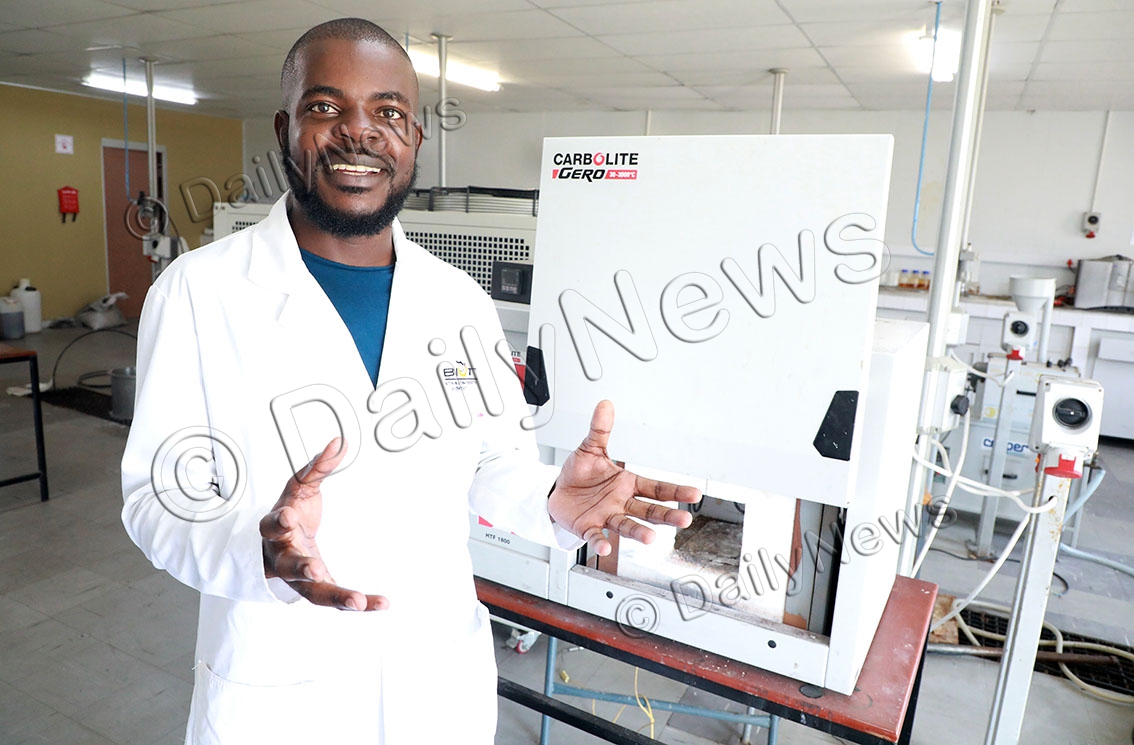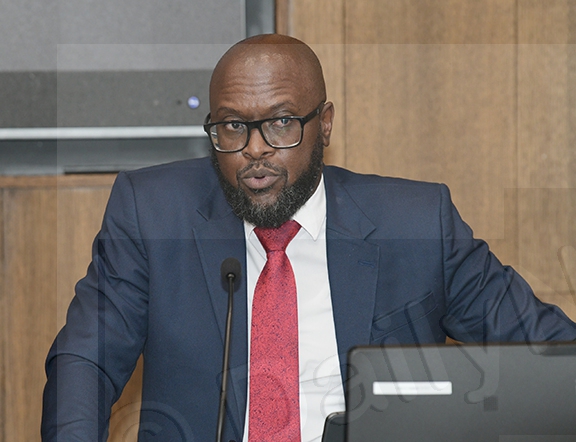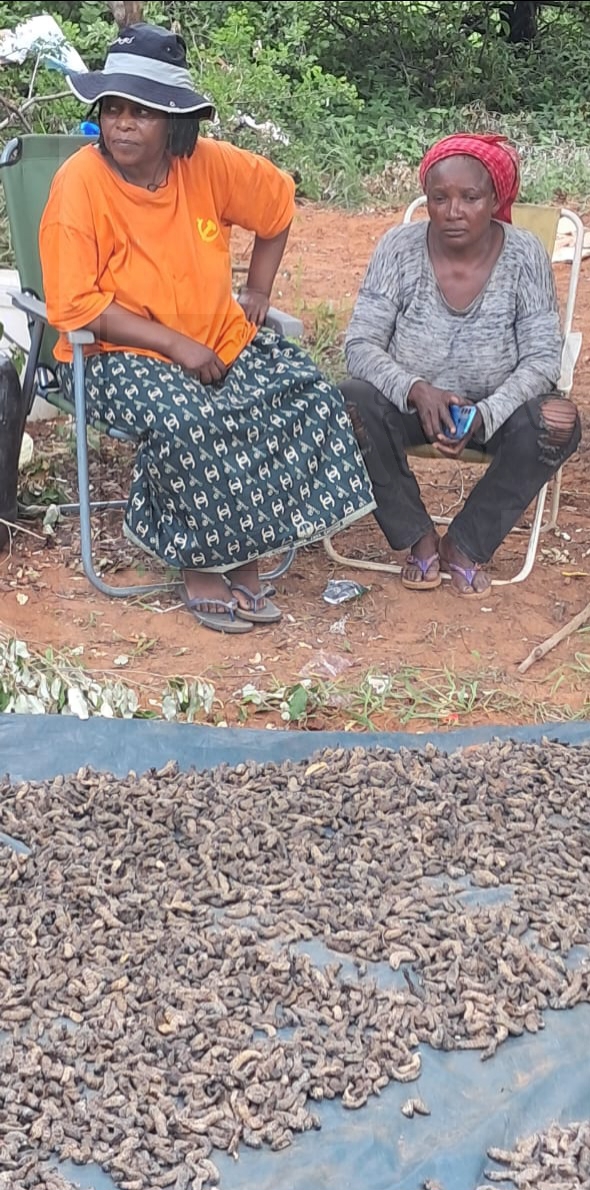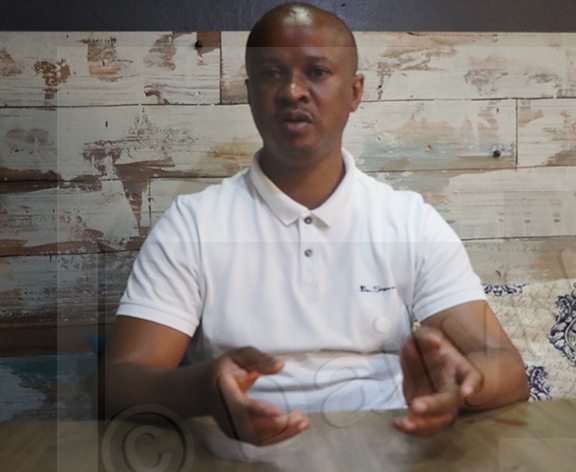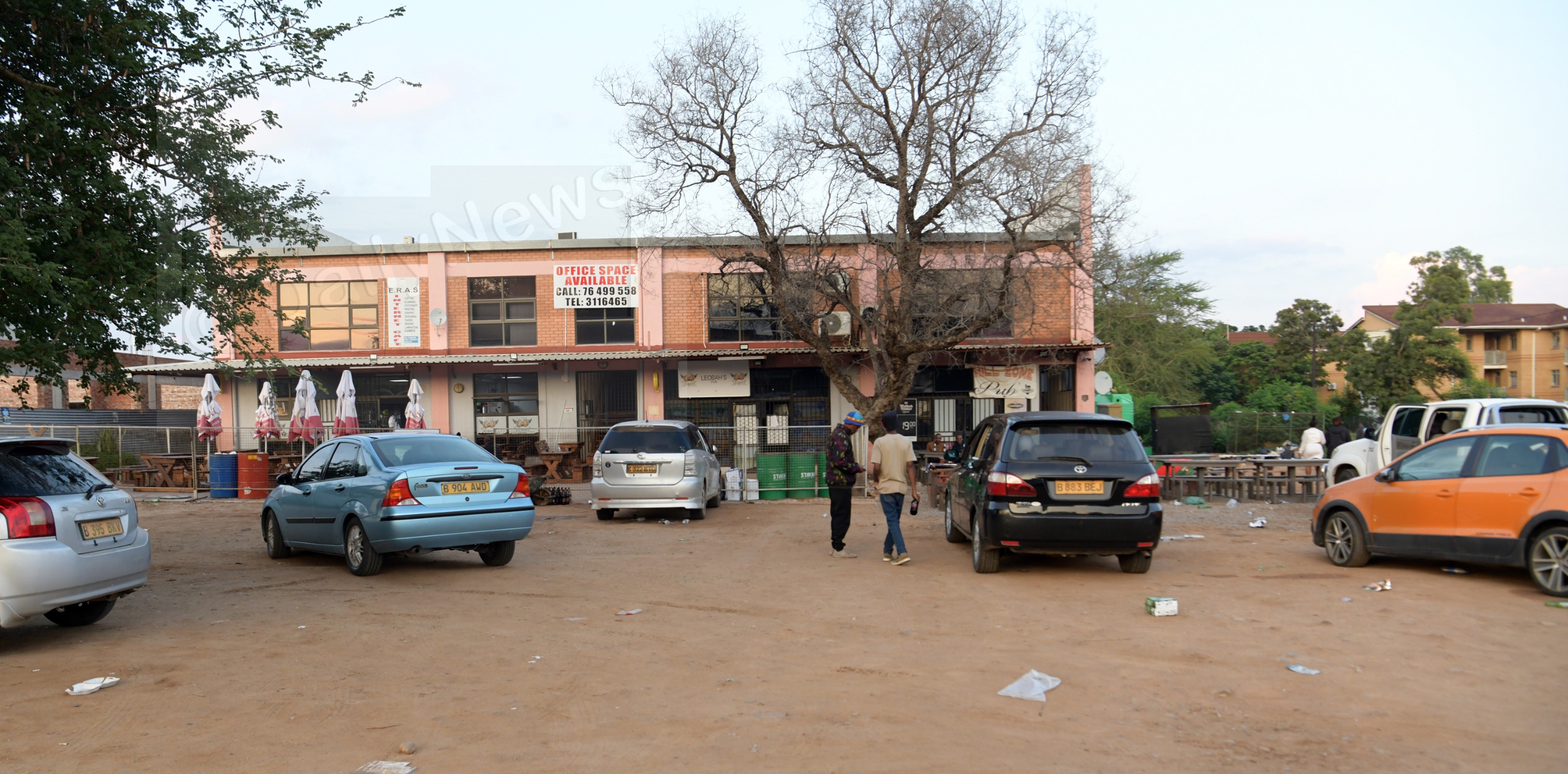Project to reduce steel imports
02 Apr 2024
A master’s student at Botswana International University of Science and Technology (BIUST) has embarked on an iron ore beneficiation project that has potential to reduce the amount of steel imported into Botswana, and boost infrastructure development. With a nationally proposed budget increase of 33.5 per cent toward infrastructure development, Botswana is in high demand of steel and currently overwhelmed by alarming shortages.
Speaking in an interview with BOPA, Mr Mompati Bulayani, a BIUST Materials and Metallurgical Engineering master’s student, who holds the intellectual property to the reduction roasting process using coal, said the project had potential to set Botswana apart in construction and manufacturing.
Mr Bulayani reiterated that the country does not have any iron or steel source, hence much dependence on imports since there was nowhere in Botswana iron was being processed.
He pointed to statistics that indicated that in 2022, Botswana imported 160 000 tons of steel and steel products worth P3.2 billion.
The following year, that went to 197 146 tonnes at a cost of PP3.4 billion. He said a few attempts to adequately service the local market were through a few companies where by-products or scrap materials were used to improve some concentrates.
Mr Bulayani said to produce iron or steel, a certain grade of iron ore which had at least 80 per cent of iron was needed in direct production of steel and iron, citing a shortage of such quality in Africa and beyond.
He said the situation was instigated by the fact that the depletion of high-grade iron was at its peak since infrastructure development depended on steel and iron, adding that steel and iron remain fundamental in every construction site.
For his prototype, Mr Bulayani said he used raw iron ore from one indigenous mine to concentrate the iron, mentioning that he pulverized it into laboratory size and it gave him a 66 per cent quality which was still not sufficient to be processed into anything valuable, be it steel or iron.
He said through a reduction roasting process he took advantage of abundant coal from Morupule Coal Mine which at present does not have sufficient market and has never been used for metallurgical purposes, but mostly for power generation.
Mr Bulayani dubbed his project “The Future of Botswana”, because of its simplicity to attain and mentioned that he has managed to get results from his first trial through conversion of waste into a more magnetic concrete by removing impurities and deriving purpose from the used coal.
He said with availability of 212 billion metric tons of non-coking coal from Mmamabula, Masama and Morupule mines, Botswana only used less than 30 per cent of its coal through electricity generation.
Mr Bulayani said his project had potential to create jobs.
He said quite a large number of Batswana would be hired by this project, mentioning that it was not costly to set up either as the iron ore and coal were equally available and underutilized, adding that the country had about 2 billion metrics tons of iron ore.
Mr Bulayani said the processes adopted were energy efficient, cost effective and not too technical, saying now with the availability of iron concentrate, steel manufacturing plants could take effect locally.
He said this was a continuous project which he shall adopt into his PhD studies where his aim will be to produce steel using green technology, citing that Botswana was richly blessed with abundant sunlight which put the country in good stead to make green steel.
Mr Bulayani said the process demanded that he captured sunlight and produce hydrogen from electrolysis, and pump it into the iron concentrate and have green steel.
He said already trial runs have been completed and await funding to be developed into commercialization stage, adding that universities were better positioned to uptake national research and innovate products that would curb challenges in the society.
Mr Bulayani said his project has been successful elsewhere around the globe, citing that Zimbabwe, India and Mozambique have successfully managed to set up iron and steel plants using low grade raw materials. However, Botswana stood at a better position given the quality of iron ore and coal found locally.
He said support structures towards research and innovation at university level should be well defined and adequately budgeted for, with maximum monitoring and supervision to ensure that projects were completed to commercialisation stage.
Mr Bulayani made a call to the industry to find investment opportunities within universities, mentioning that there were diverse projects that were already at a trial phase within campus which needed funding to kick start.
He appreciated efforts done by BIUST in setting up a legal office that focused on initiating processes towards patenting products being developed within the university, citing that already the respective office has registered two patents since inception. Ends
Source : BOPA
Author : Marvin Motlhabane
Location : Palapye
Event : Interview
Date : 02 Apr 2024


